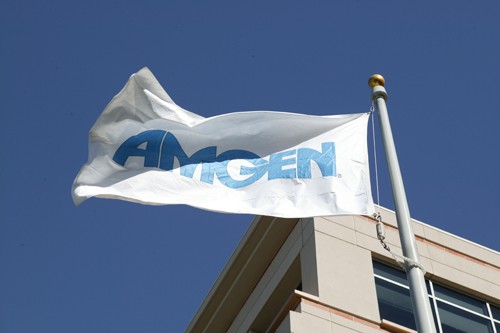
Amgen has won another round in its lawsuit with Sanofi and Regeneron over patent rights to the new PCSK9 inhibitor class of cholesterol-lowering drugs.
As it stands, Sanofi and Regeneron will be banned from “marketing, selling or manufacturing” their Praluent (alirocumab) drug in the US in 30 days, unless they are able to successfully appeal the verdict. The decision follows an earlier victory for Amgen as it defended patents on its rival PCSK9 inhibitor drug Repatha (evolocumab), which was upheld after an appeal.
Both drugs are approved in the US to help patients who cannot meet their cholesterol targets with existing therapy, such as statin drugs, or who have inherited disorders that cause elevated cholesterol. Praluent was approved in the US first.
Sanofi and Regeneron immediately said they would appeal both the injunction and the earlier patent decision and would be filing for a stay of the injunction while the appeal is heard, and Praluent will remain on sale for the time being.
Failure in the appeal would mean that Praluent would be prohibited from sale for 12 years, unless the rival parties could come to some agreement to keep the drug available to patients, such as a licensing and royalty arrangement. That option is highlighted in court papers which urge the companies to arrive at an “appropriate business resolution”.
“It is our longstanding position that Amgen’s patent claims are invalid and that the best interests of patients will be greatly disserved by an injunction preventing access to Praluent,” said Sanofi and Regeneron in a statement.
Amgen meantime is pulling no punches, insisting in its own press statement that it “has the ability to supply all potential Repatha patients and will work to ensure a smooth transition for patients who wish to switch to Repatha”.
The judge in the case acknowledged that both companies had invested considerable resources in bringing the two drugs to market and there were benefits to having two such drugs available to patients, but was tied by the patent decisions. A potential third entrant – Pfizer’s bococizumab – was dropped from development last year.
At one point analysts had been predicting blockbuster status for both drugs, despite a $14,000-a-year list price that has resulted in kickback from payers used to covering low-price statins, but early uptake has been disappointing.
Third-quarter sales of Repatha and Praluent were just $31m and $38m, respectively, although they could pick up pace if ongoing studies reveal a benefit on cardiovascular outcomes versus statins.




